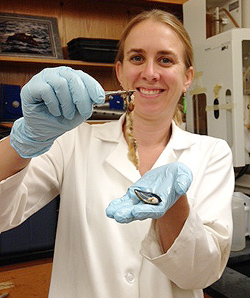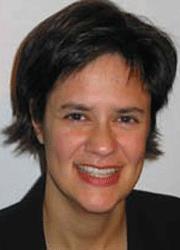WSU researcher tracks levels of microcystins

Ellen Preece wants to know if microcystins, liver-damaging toxins produced by algal blooms in freshwater lakes, accumulate in Puget Sound seafood.
She’s not the only one who wants to know. Preece, a doctoral student in the WSU School of the Environment, is helping the Washington Department of Health determine whether seafood accumulates enough microsystins to be a health concern for populations who rely on locally harvested seafood to meet their protein needs.



